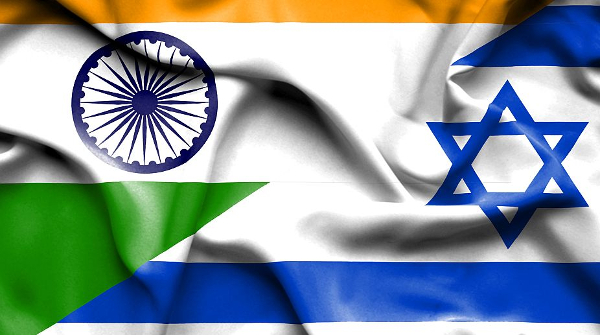Challenging times call for innovative solutions. Striving to overcome the restrictions on travel and the need for maintaining social distancing, the Indo-Israel Agricultural Project (IIAP), a strategic cooperation on the G2G level in the field of agriculture, has introduced crop diversity, increasing productivity and optimising water use efficiency in horticulture to address the challenges during the Covid-19 pandemic.
The model of implementation is by establishing Centers of Excellence (CoE), in which advanced/intensive agriculture farms for knowledge will transfer Israeli Agro-Technology tailored to the local conditions. CoE aims to benefit farmers with a focus on selected key crops. Each CoE will comprise of Nursery management, best practices cultivation techniques, irrigation and fertigation. Sustainability- IIAP aims to develop into a self-sufficient platform in the aspect of HR, accumulated knowledge and operating capabilities. The CoE will act as a meeting point for Academy, Government and farmers to cooperate towards fruitful achievements, says Dan Alluf, Counsellor, MASHAV Agriculture at the Embassy of Israel in India.
“The IIAP is addressing the COVID-19 challenge by working both strategically and tactically with each of our active centers of excellence,” says Alluf, who has been linked with the project for the last six years.
MASHAV, Israel’s Agency for International Development Cooperation, is India’s strategic partner in the 12-year cooperation, based on a MOU signed in 2006. Alluf states that so far 28 fully active Centers of Excellence have been established across 12 states in India under the cooperation pact. Key crops being focused on under the project include mango, pomegranate, citrus fruits, date palm, vegetables, floriculture and bee keeping – all products and activities that hold potential to increase yield in terms of quantity and quality, save water and nutrients and result in higher earnings for the farmer.
“Through the ongoing partnership we are promoting advanced and sustainable agriculture practices, we generate applicable knowledge and solutions which ate transferred to an average of 1.5 lakh farmers annually in all agriculture activities.
To overcome the hurdle posed by the restriction of movements during the lockdown, we have started imparting training through digital platforms,” says Alluf.
In terms of generating knowledge, one example is the use of Satellite imaging that is being implemented to execute precision irrigation, to make every drop count. For this, field sensors are also being used to test the soil moisture to plan and monitor irrigation and improve water use efficiency up to 95 per cent.
The training of trainers is a major pillar of our INDO- ISRAEL cooperation we conducted (during pre-COVID period) with Israeli MASHAV experts coming to India and for Indian officers traveling to Israel.
As the lockdown took place, we immediately moved the expert engagement to the digital platform through which we are conducting intensive trainings and knowledge transfer. Thus, there is a continuous flow of cooperation.
The centers are producing cultivation protocols tailored to local conditions for enabling farmers to have an applicable guideline to implement advanced field management of all value chain aspects. The solutions are being developed keeping in mind the culture of farmers and size of their land holdings, but making sure agro-technologies and value crops will be utilised to result in game-changing end result for the farmers’ benefit.
As an additional immediate step to help farmers during lockdown, MASHAV is ensuring that farmers are being provided seedlings and plants produced in hi-tech greenhouses in the INDO-ISRAEL centers.
The seedlings are delivered to the farm’s gate instead of having the farmer travel to the nurseries being operated under the care of the centers of excellence.
These seedlings are of premium quality and uniformity, enabling the farmers start their crop cycle or plantation with the best planting material available.
The way forward of the INDIA-ISRAEL Cooperation in agriculture, Alluf says, is plan to create “villages of excellence”, create eco-systems, based on the G2G IIAP, for the establishment of end-to-end solutions comprised of infrastructure, capacity building, and a comprehensive market oriented approach.
Source: Outlook India
You may also like
-
IAF Aircraft Set Course For Exercise Eastern Bridge VII At Oman
-
Trade Connect E-platform For Exports Is Single Window, Fast, Accessible And Transformational: Shri Piyush Goyal
-
India-us Working Together In Areas Like Critical Minerals, Supply Chains And Advanced Technologies: Shri Piyush Goyal
-
Dot Simplifies Approval Processes For Telecom Licenses And Wireless Equipment
-
Coal Production and Supply Trends on Positive Trajectory
